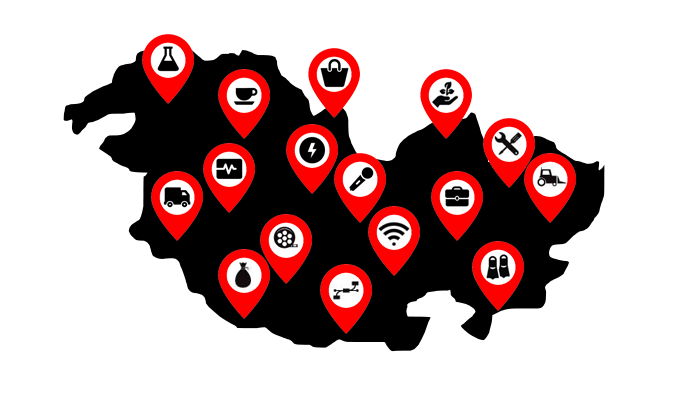In a world of increasing complexity, it is impossible to solve challenges in any centralised way. There needs to be a new approach to global philanthropy. By ‘global philanthropy,’ I mean large donors and institutions that seek to solve the major issues of our time.
Complex systemic issues – like poverty, populism, mental ill-health and unsustainable healthcare costs – are very difficult challenges to solve, at the best of times. Global institutions, and even most national governments, are drowning under this rising tide of complexity and making little progress.
The explosion of technological possibility – and transparency around what is being done elsewhere – mean that new solutions to problems are appearing all the time. The challenge is, for the more complex issues, there needs to be a networked approach, cutting across the many silos of traditional society.
Social activists have long been encouraged to ‘think globally and act locally’. Yet, there isn’t a practical way of doing that. If you look at healthcare, for example, it is impossible to change things fully at the local level without changing national governance. In many cases, it requires strong public opinion and laws to change things – and in big systems, that takes a long time.
I got involved in establishing The Dandelion Foundation in Guernsey precisely because I felt that small states have a real role as transition states and models for the world. The ability to use philanthropic resources for localised solutions whilst also influencing national policy-making creates an integrated model that is more efficient and effective in addressing complex systemic issues.
A transition is necessary for small states to move from being tax havens (global net takers) to being testbeds (global net givers). Once small states realise that they can attract resources to become testbeds for new ideas and approaches, they will build their economies in a much more resilient way, whilst also providing greater social benefit and progress, for less cost.
There is increasing political pressure for greater autonomy amongst nations, and these small states can be testbeds for developing the type of governance needed for this global transition. The gradual collapse of institutions like the EU – and even the UK and US – will require a huge expansion in terms of governance at the local level, to prevent igniting the dry grass of populism.
Bringing down the cost of governance and infrastructure is a primary mechanism to create long-term resilience in the world, and traditional large nation states will no longer be needed. If every town or city is able to deliver all it needs for itself, by itself, this is the type of system that can deal with the complexities of the future.
There are places in the world already operating in this way. And it is no surprise that many of them have become extraordinarily wealthy from inward investment, whilst maintaining low taxes that pay for governance. And yet, as testbeds for new systems for the rest of the world, they are precisely the places in need of targeted philanthropic resources – to speed up their capacity to innovate and provide low-cost breakthroughs for complex systemic issues.
When the world learns how these small states deliver so much for their populations from such small tax bases, we will realise how much they have to offer.
Personally, I would like to see major philanthropic institutions following the path of major financial institutions – in moving some of their operations offshore. This way, philanthropists can spend far less to achieve much more – to directly develop solutions to the challenges in which they invest.
To testbeds.
Marc
Buy Me a Coffee
Did you love this article? If so please consider buying me a coffee.
Take The 50 Coffee Adventure
A Fun, Light and Easy Way to Build Connections
Or search your local Amazon store for "The 50 Coffee Adventure".

“There are places in the world already operating in this way. And it is no surprise that many of them have become extraordinarily wealthy from inward investment, whilst maintaining low taxes that pay for governance.” Given your revelation here, I would have expected you to at least back-up your claim with specific jurisdictions/countries/states where this economic model has succeeded rather than merely stating that it has. A couple of examples, please, otherwise your assertion carries no weight and merely pure idealism at best.
Also, “When the world learns how these small states deliver so much for their populations from such small tax bases, we will realise how much they have to offer.” Again, this is looking at things from an ideal, and, if I might add, very limited perspective. If a state/province/country, etc is much more reliant on inward investment than public taxation, then it can also be subject to the whims of those at the helm of businesses electing or enticed to invest. Look how the Channel Islands has become so reliant on building and developing its finance industry to the extent where, if banks/trust companies, etc, choose to go elsewhere through the offer of more lucrative incentives, the economy of those islands could collapse within a few years or even months. A government delivering so much for its population based on low public taxation and the financial rewards of inward investment sounds fabulous to you, me and anyone else wishing it’s ‘rulers’ would adopt such a seemingly advantageous model, but, make no mistake, reliance on such a model carries inherent risks.
You proffer a positive viewpoint and potential model of progress which is to be greatly admired. Sometimes, however, you perhaps need to scratch under the surface of your proposals to see things from a broader perspective in order to more clearly see the potential obstacles to progress. Highlighting and addressing a broader perspective in your articles will help illustrate how you realistically propose to change things for the better.